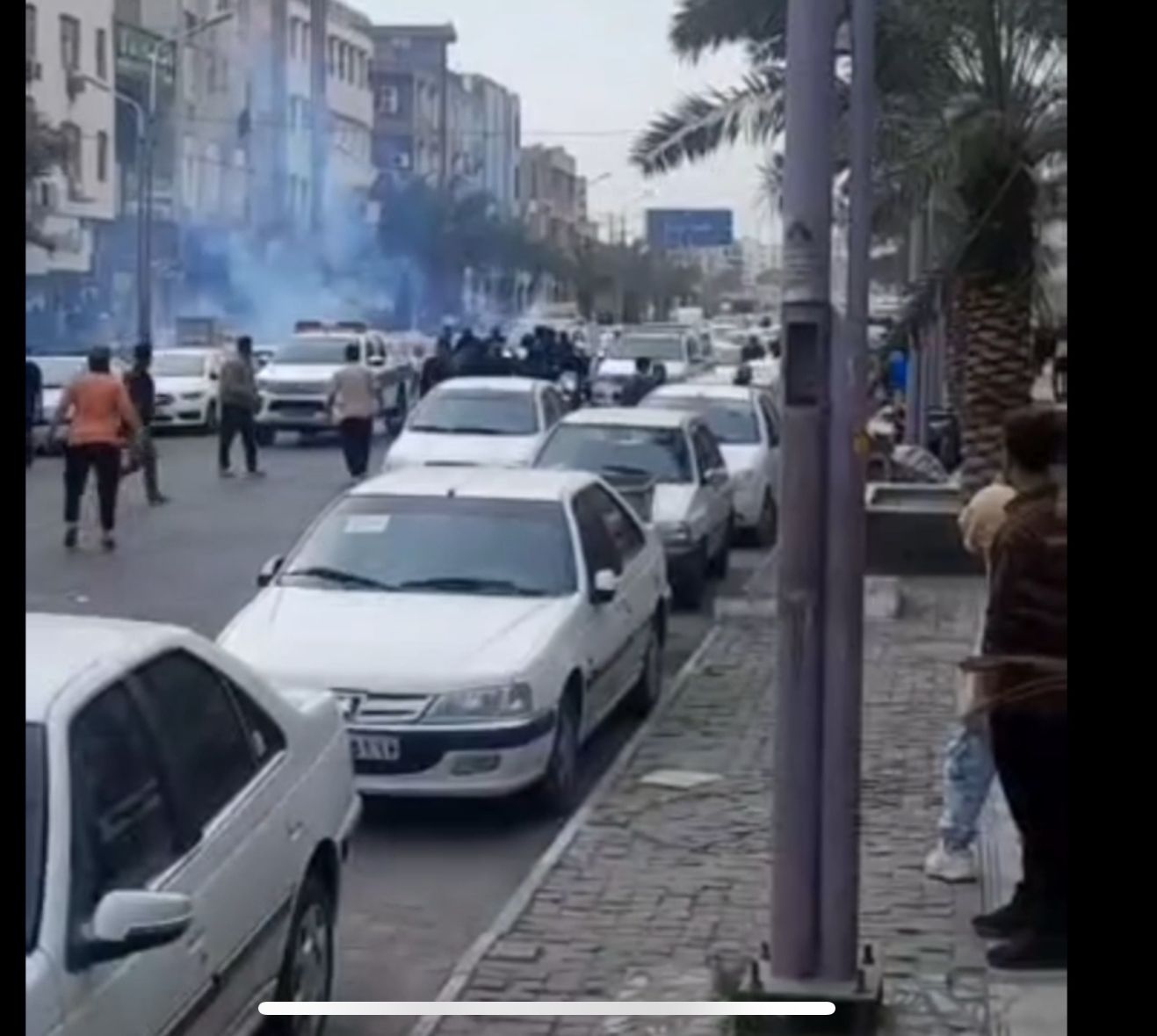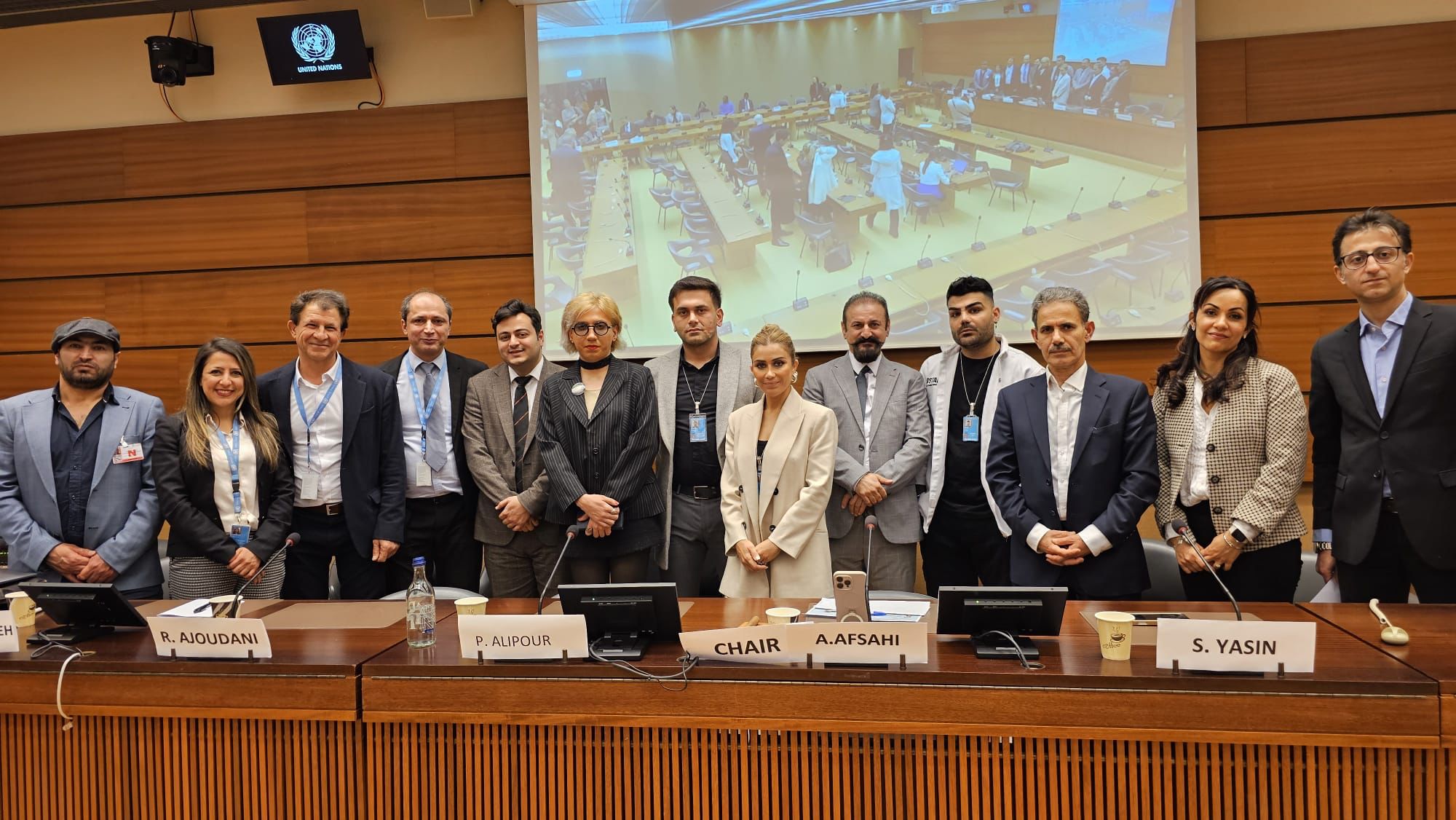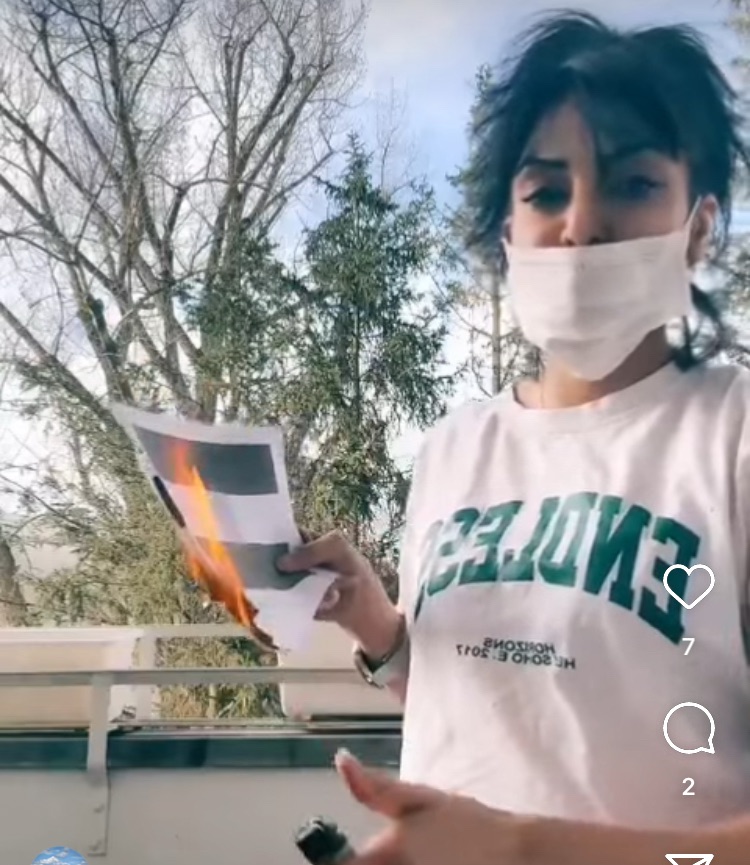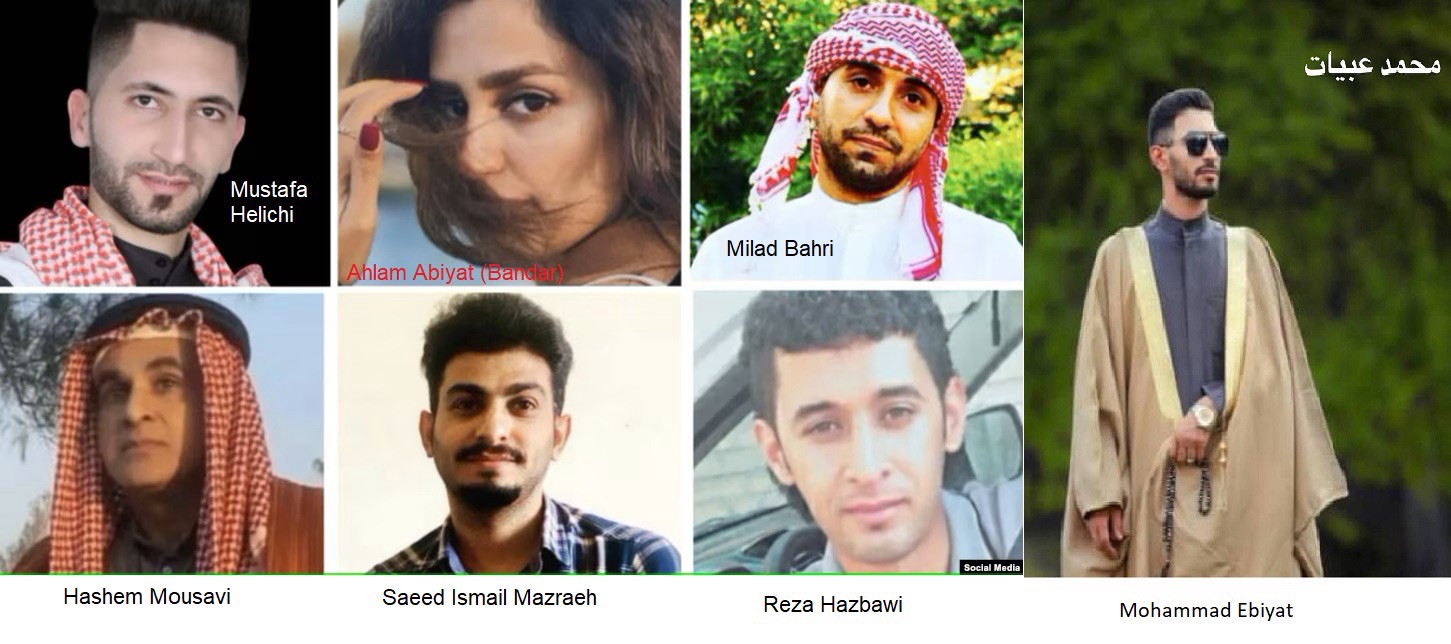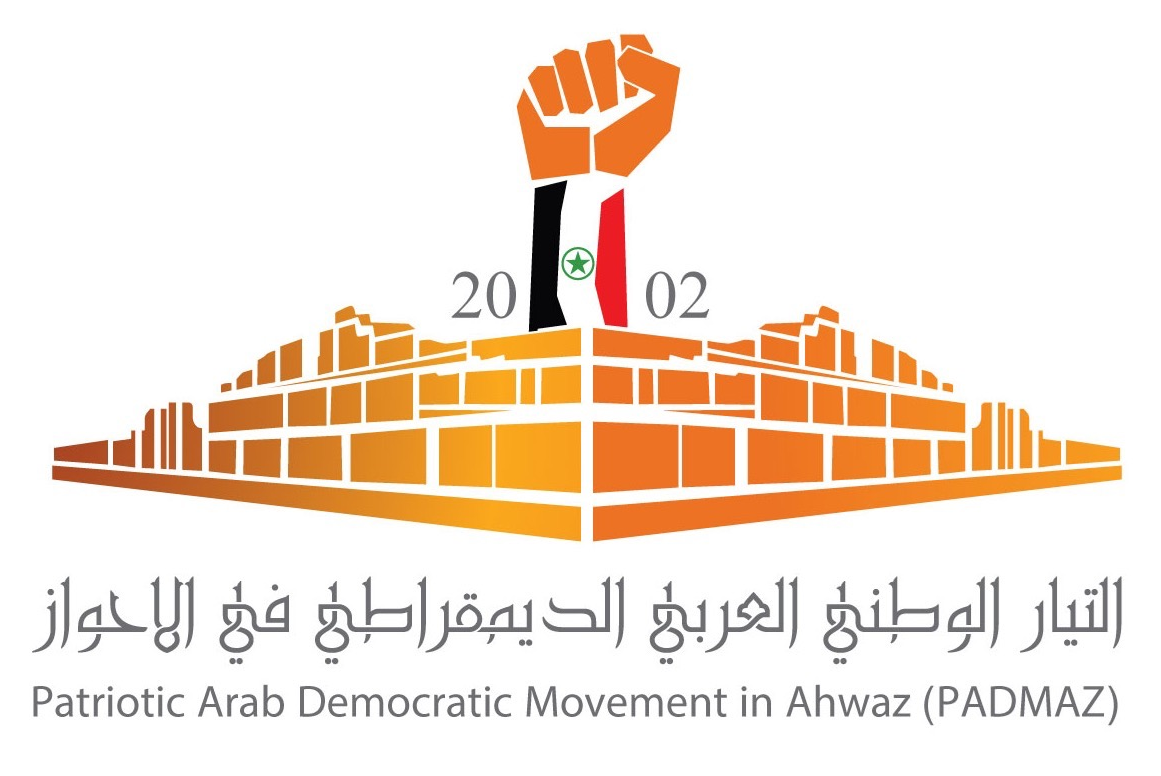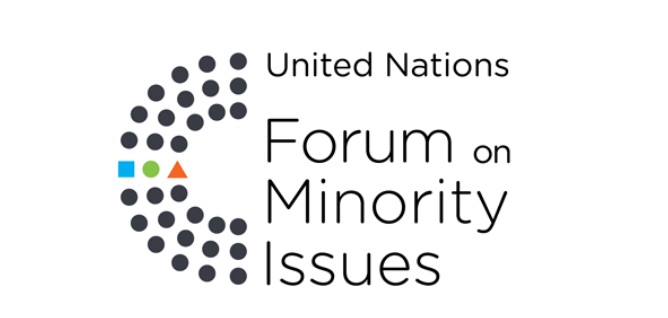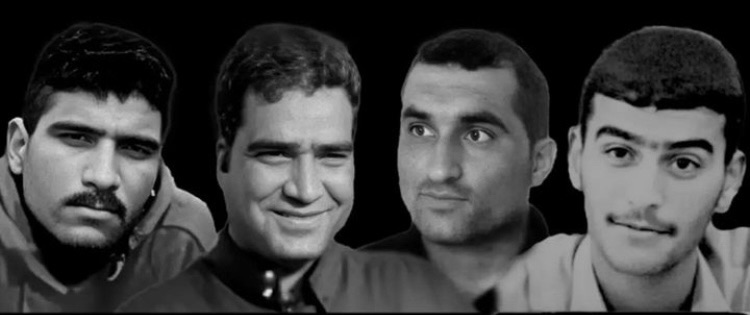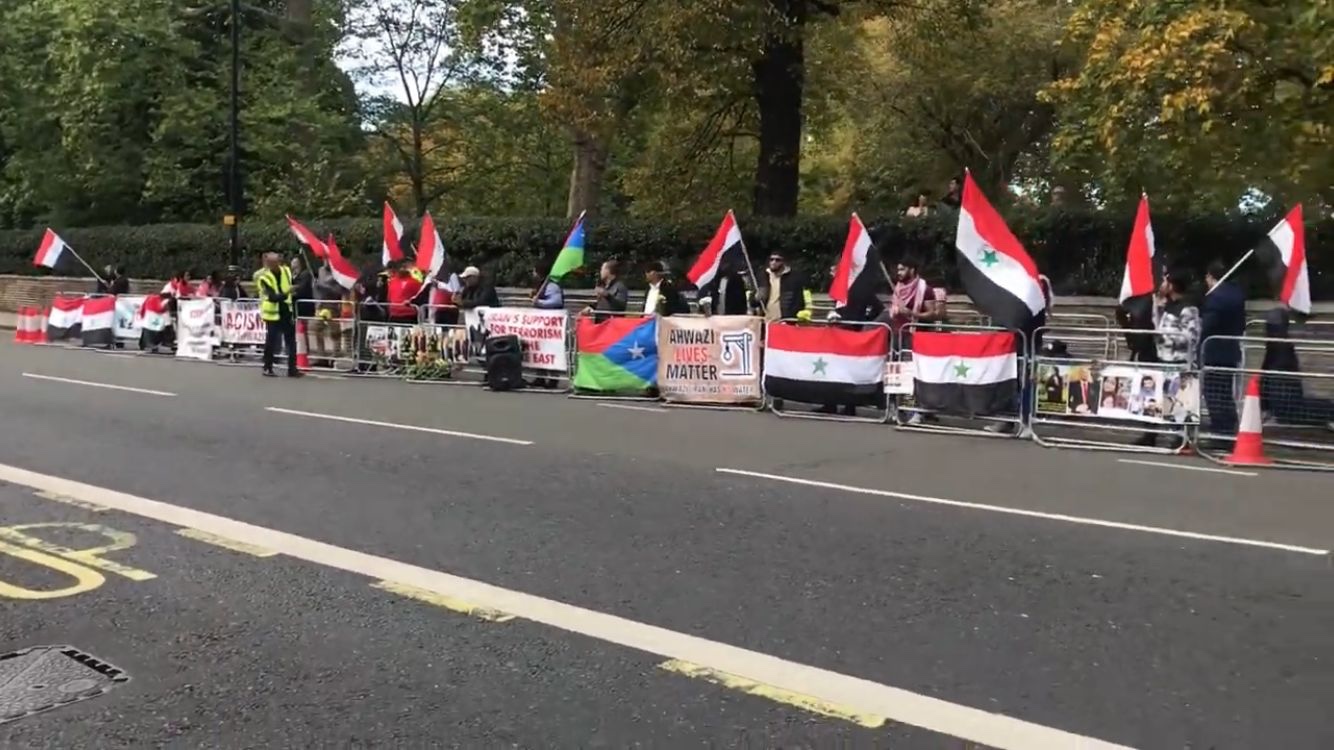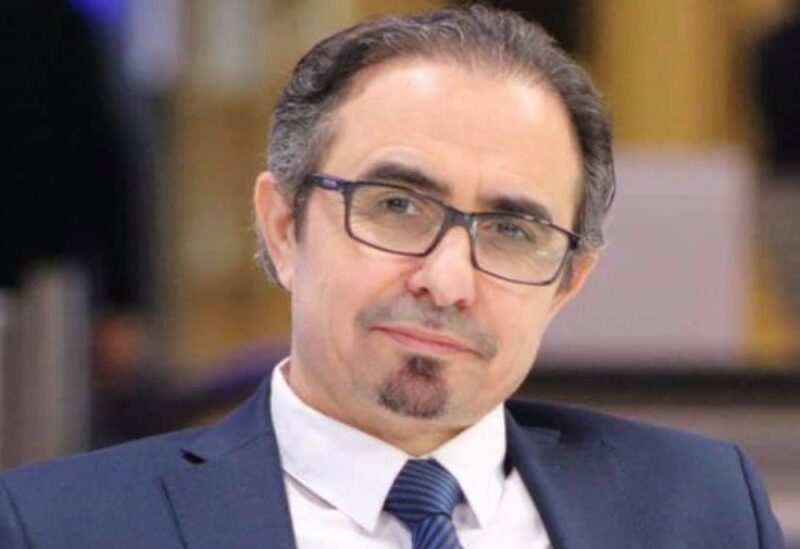UN 12th Session on Minorities Issues
UN 12th Session on Minorities Issues November 2019
PADMAZ’s representative, Abdulrahman Heidari, gives his speech in the UN 12th Session on Minorities Issues which was held on 28-29 November 2019 in Geneva.
Madam/Mr Chairperson,
Ladies and Gentlemen,
I am representing Patriotic Arab Democratic Movement in Ahwaz (PADMAZ) which has been struggling for the sake of Ahwazi Arabs since it was established in 2002. Through its activities, PADMAZ aims to oppose the Iranian arbitrary and racist policies against Ahwazi Arab people by peaceful means. Moreover, we work to gain Ahwazi right of self-determination based on international Human Rights regulation.
I would like to start my presentation by mentioning one of my recommendations first because of shortage of time.
Based on what happening on the ground and the following: We, in PADMAZ, believe that it is time for the international community to intervene to protect people in Iran especially the Ahwazi under the R2P regulation to save ahwazi people from atrocities of the Iranian government
Ahwazi Arabs are among the most brutally oppressed peoples in the Middle East.
The Ahwazi has been struggling to gain their basic right for more than 90 years. They are deprived from their very basic right such studying in their mother tongue, Arabic, and using Arabic name for the new born children. The level of unemployment and poverty is very high among the ahwazi according to the Iranian statistic. The Ahwazi are a victim of Iran’s changing demography policies which aim to build one nation, one country with one culture through destroying non-Persian nations.
Although Article 15 of the Iran constitution weakly announces the right of teaching minorities’ language, this article has never been activated.
Madam Chariperson,
Right of education cannot be mentioned without mentioning the NGOs and their roles to protect the identity of minorities:
Today I am going to mention a number of events happened in Ahwaz darning 2019. Shortage of time prevents me from explaining them in detail:
In 2018 more than 5 major uprising and 900 demonstrations against the regime happened in Ahwaz, the number of arrest exceeded 5000, more than 100 people were executed.
- The Iranian authorities arrested the cultural activists including singers, poets, and journalists. For example: three members (Hassan Sobheipoor, Hassan Eshghian, Bagher Khasraji) of Al-Nasr organisation, NGO, were arrested just because of a producing and singing a traditional song.
Also a number of Ahwazi poet were arrested including Shahab Sayahi and Hassan Heidari who passed away on 10th Novermer in a mysterious situation. As a consequence of his death a mass protest held in different Ahwazi cities. People accused the Iranian regime of his death. His family were arrested and were forced to provide fake statements.
- The Ahwazi joined other nations in Iran in the recent uprising as a result of which more than 70 Ahwazi were killed, hundreds were wounded, and thousands were arrested by the Iranian authorities.
- In 2019 the unrest situation continued, however the authorities tried to suppress the Ahwazi people by contrived floods as a result of which more than 1,500,000 were displace and hundreds of villages were destroyed. The Iranian authorise is fully willing to displace the Ahwazi population by opening floodgates in the dams constructed upstream and flooding the whole area to safeguard the oil and gas facilities, and it is callously using the flooding as a pretext for the large-scale ethnic cleansing of the Ahwazi population.
The devastated Ahwazi Arab were treated with racism and discrimination by the Iranian authorities (according to Jawad Albaji, MP from AHWAZ), moreover they arrested the Arab youth who were working voluntarily to support the affected people. For instance we can name some of the detainee as an example: Shahab Sayahi, Ahman Saedi, Nabi Saedi, Abbas Hojati, Mustafa All-Kathir, Said Manabi, Ahmad Moramadi (32), Sadegh Alboghbeish, Ali Mojadam (38), Salim Deriawi (32), Ali Jawadi (20), Jasem Moghadam (30), Adnan Ghobeisawi (22), Fares Romahi Moghadam, (28), Seyed Salem Albushoka (27), Habib Deris, Ali Mojadam,
Although more than 10 months have passed, the government failed to provide support to the devastated farmers and those who have lost all their belonging are still struggling to re-start their life again.
In order to find out about the impact of Iranian dam building policy, I refer you to PADMAZ’s speech in 2016 in the 9th Session of UN Forum on Minorities in which it warn of the impact of dam building on Ahwazi environment and the plan behind these projects. - The protest of Ahwazi workers (of Steel Complex, Haft Tapeh Sugar Cane, municipals, the underground, Petrochemical Companies,.. ) continued in 2019, although, the Iranian authorities arrested hundreds of the protestors and accused them of being threat to the national security and being spy of western countires including US, UK. The Iranian authorities arrest the workers, representatives including Karim Sayahi, Mohammad Khanafera, Azim Sarkha, Mustafa Abayat, Meitham Ali Ghanawati, Tariq Helfi, and Gharib Howeizawi.
- There was news of execution of Ghasem Beit-Abdullah (34) and Abdullah Karm-Allah Chaab, two Ahwazi political activists. Also 34 more Ahwazi prisoners facing death sentences. The authorities refuse to give any information about their situation, and the families have no information about the fate of the prisoners.
- Also the fans of Ahwazi football team were suppressed and arrested by the Iranian oppressed authorities. We can mention here as an example: Ali Sawari, Ibrahim Mogeinemi, Mohammad Sawari, Yousef Sawari, Mohammad Bo-edhar, Mohammad Bawi, Maher Cheldawi)
Based on what have been mentioned above we suggest to:
- We believe it is time for the international community to intervene to protect people in Iran especially the Ahwazi under the R2P regulation to protect people against atrocities of the Iranian regime.
- Force Iran to stop its changing demography policies.
- Give the Ahwazi the right to practice freely their cultural, political, and social life
- Put pressure on Iran to Unconditionally release all detainees
- Support the Ahwazi to enjoy the Right of Self- Determination which is guaranteed by the United Nation Declaration
- We believe it is time for the international community to intervene to protect people in Iran especially the Ahwazi under the R2P regulation to protect people against atrocities of the Iranian regime.
Madam Chairperson,
What I have presented here today is just a small fraction of what amounts to a systematic policy to eradicate the Ahwazi nation. This requires urgent action from the International Community. We strongly suggest the appointment of an investigative- and monitoring committee by the United Nations.
Thank you for giving me the opportunity to raise part of Ahwazi people issues
Abdulrahman Heidari (PADMAZ Representative)
28-29 November 2019

